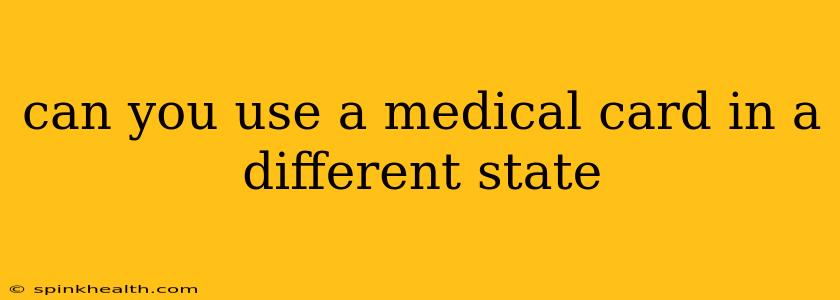Can You Use a Medical Card in a Different State? The Cross-State Cannabis Conundrum
The question of whether you can use a medical cannabis card in a different state is a complex one, weaving together legal intricacies, individual state laws, and the ever-evolving landscape of cannabis legislation. It's a journey through a patchwork quilt of regulations, where the answer isn't a simple yes or no, but a nuanced "it depends."
Imagine Sarah, a medical cannabis patient in California, planning a cross-country road trip to visit family in New York. She relies on cannabis to manage chronic pain, and naturally, she wonders: Can she legally use her California medical card in New York? The answer, sadly for Sarah, is likely no. While both states have legalized medical cannabis, their individual laws govern the use and possession of cannabis within their borders. A medical card from one state doesn't automatically grant legal protection in another.
What Determines Reciprocity for Medical Cannabis Cards?
The crux of the matter lies in reciprocity. Reciprocity, in this context, means that one state recognizes and accepts the medical cannabis card issued by another state. Currently, very few states have reciprocity agreements. This means that even if both states have medical cannabis programs, a patient's card from one state generally won't offer legal protection in the other.
This lack of reciprocity stems from several factors:
- Differing State Regulations: Each state's medical cannabis program has unique qualifying conditions, allowed dosages, and permitted forms of cannabis. These variations make it difficult to establish consistent standards for cross-state recognition.
- State Sovereignty: States retain significant control over their own laws, and the decision to establish reciprocity often involves political considerations and varying levels of comfort with cannabis legalization.
- Concerns about Legal Enforcement: Concerns about regulating out-of-state patients and the potential strain on resources contribute to the hesitation in implementing reciprocity.
Can I Travel with My Medical Cannabis Across State Lines?
This question frequently accompanies the main one. Even in states where medical cannabis is legal, transporting it across state lines is generally illegal under federal law. Federal law still classifies cannabis as a Schedule I drug, meaning it has a high potential for abuse and no currently accepted medical use (despite the clear evidence to the contrary). This federal prohibition overrides state laws, leaving medical cannabis patients in a precarious situation when traveling across state borders.
What Happens if I'm Caught with Medical Cannabis in a Non-Reciprocal State?
The consequences of getting caught with medical cannabis in a non-reciprocal state can be significant, ranging from:
- Fines: You could face substantial fines.
- Arrest and Jail Time: Depending on the amount of cannabis and the state's laws, arrest and jail time are possibilities.
- Criminal Record: A criminal record could have long-term consequences impacting employment, housing, and other aspects of life.
Are There Any States with Medical Cannabis Card Reciprocity?
While widespread reciprocity remains a distant goal, some states have established limited agreements or are exploring possibilities for future cooperation. However, it's crucial to research the specific regulations of each state you plan to visit before traveling with any medical cannabis. The situation changes frequently, and legal interpretations can differ.
What Should Medical Cannabis Patients Do When Traveling?
The safest course of action for medical cannabis patients traveling to a state without reciprocity is to leave their cannabis at home. It's always advisable to check the laws of your destination state well in advance of your trip and prioritize compliance with the law.
In conclusion, using a medical card from one state in another is a risky endeavor. While the push for greater acceptance and legalization of medical cannabis is gaining momentum, the legal landscape remains highly fragmented, and the lack of widespread reciprocity poses significant challenges for patients traveling across state lines. Always prioritize compliance with local and federal laws to avoid potential legal consequences.

